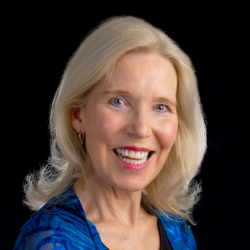Most of us have experienced gut wrenching times when our self-esteem suffers a crushing blow. At other times, it may seem that our self-esteem is low for no identifiable reason at all. Simply put, self-esteem equates to the confidence in one’s own worth or abilities. It is directly tied to our self-image, happiness, and ability to succeed in life. For the most part, it can be influenced by others but, ultimately, controlled by ourselves. So how do we evaluate the level of our self-esteem? And what can we do to improve how we feel about ourselves?
Start with your Self-Esteem Check-Up.
Directions: On a scale of 1 – 5, rate how much you believe each statement. “1” means you do not believe the statement at all and “5” indicates you completely believe it. Be sure to include the numbers (2, 3, and 4) as part of your rating.
- ______I believe in myself.
- ______I am just as valuable as other people.
- ______I would rather be me than someone else.
- ______I am proud of my accomplishments.
- ______I feel good when I receive compliments.
- ______I can handle criticism.
- ______I am good at solving problems.
- ______I love trying new things.
- ______I respect myself.
- ______I like the way I look.
- ______I love myself even when others reject me.
- ______I know my positive qualities.
- ______I focus on my successes and not my failures.
- ______I am not afraid to make mistakes.
- ______I am happy to be me.
Add up your total number of points.
______Your Total Score
**Important: To download a hard copy of Your Self-Esteem Check-Up, CLICK HERE.
Self-Esteem Benchmarks
To determine your level of Self-Esteem, use the scale below to match your total points to the closest benchmark category.
- 15 points – Poor Self-Esteem
- 30 points – Low Self-Esteem
- 45 points – Moderate Self-Esteem
- 60 points – Good Self-Esteem
- 75 points – Exceptional Self-Esteem
Begin with these steps to increase your self-esteem?
- Stop being a victim. Alter your mind-set to take control of your destiny. Empower yourself with “I can” and “I will” statements as you work through this process. Always be mindful that this is about you and up to you. Reaffirm that you will no longer give others the power to destroy your self-esteem.
- Focus on your abilities and top attributes. Create a list of your areas of strengths: what are your positive characteristics, where are your talents, what you do well, and what do people appreciate about you. Keep adding to your list over time.
- Engage in the strengths you do well. Using your list of abilities and top attributes, make a conscious decision to act on them. If you are a skilled writer, start your own online blog. If you are good at tennis, join a tennis club. If you like to help others, volunteer. Make it a point to accentuate the best of you on a continuous basis.
- Pamper yourself. Your health and well-being are paramount to good self-esteem. Start incorporating good health habits into your daily life. Make it a point to exercise regularly, get a good night’s sleep, and eat a healthy diet. Avoid abusive behaviors, including smoking cigarettes, drinking too much alcohol, or using harmful drugs. Make time to socialize and have fun but allow yourself some peaceful time to rejuvenate.
Improving your self-esteem is possible but not easy. Take baby steps and acknowledge your successes along the way. During those inevitable setbacks, don’t beat yourself up. And above all, if you begin to struggle too much, get the professional help you need to live a meaningful and rewarding life. For all your efforts, you are worth it.
In the long run, we shape our lives, and we shape ourselves. The process never ends until we die. And the choices we make are ultimately our own responsibility.– Eleanor Roosevelt
Note: Self-Esteem Check-Up (modified instrument for purposes of this article.)
Written by: Patricia K. Flanigan, Smart Strategies for Successful Living
 Patricia K. Flanigan has worked in higher education for over 28 years. She holds a doctoral degree in Organizational Leadership from the University of La Verne as well as a M.A. in Latin American Studies and B.A. in Anthropology from the University of California, Los Angeles. Before retiring and moving to Idaho in 2015, she served as the dean of online education and learning resources at Saddleback College, a large community college in Southern California. She currently consults in higher education, volunteers for AARP, writes for a local magazine, and serves as an Affiliate Faculty member at Boise State University and a contributing member to LEARN Idaho. Since February 2017, she has been the founding director for Smart Strategies for Successful Living, a community-based website designed to promote quality aging. As an educator, her focus is to inspire others to live and age well.
Patricia K. Flanigan has worked in higher education for over 28 years. She holds a doctoral degree in Organizational Leadership from the University of La Verne as well as a M.A. in Latin American Studies and B.A. in Anthropology from the University of California, Los Angeles. Before retiring and moving to Idaho in 2015, she served as the dean of online education and learning resources at Saddleback College, a large community college in Southern California. She currently consults in higher education, volunteers for AARP, writes for a local magazine, and serves as an Affiliate Faculty member at Boise State University and a contributing member to LEARN Idaho. Since February 2017, she has been the founding director for Smart Strategies for Successful Living, a community-based website designed to promote quality aging. As an educator, her focus is to inspire others to live and age well.








